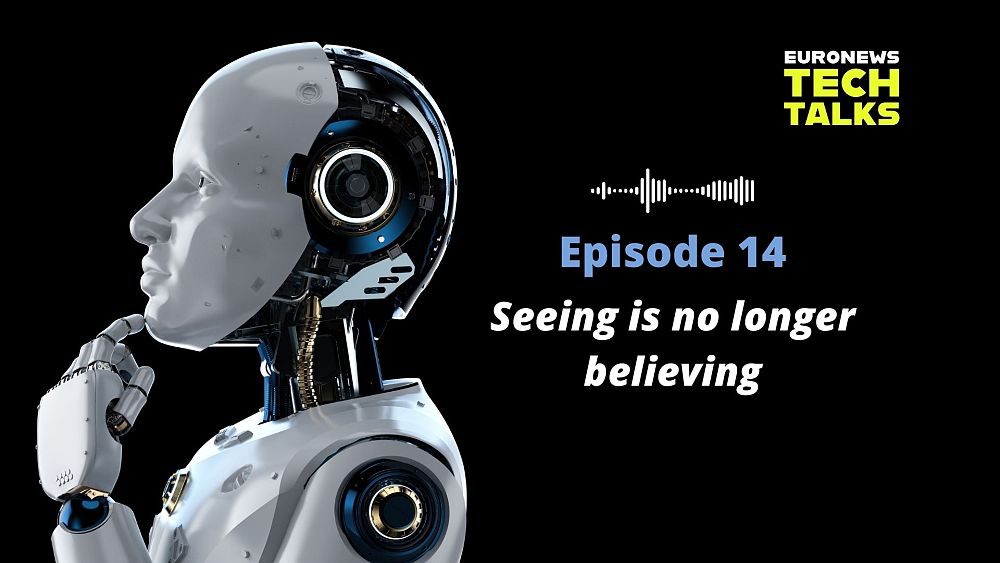Identity theft, involuntary sharing of explicit content, fraudulent schemes, and misinformation – Can AI deepfake technology be employed for purposes beyond causing harm?
The multifaceted capabilities of deepfake technology prompt discussions on its potential beyond malicious intent, drawing a parallel to the versatile utility of knives as highlighted by John Egan, the CEO of L’Atelier BNP Paribas.
In emphasizing the broader perspective, Egan notes, “If we solely focus on crimes involving knives, we overlook their indispensable role in culinary practices.”
Egan explores the dualistic nature of this cutting-edge technology in a recent segment of Euronews Tech Talks.
John Egan, the Chief Executive Officer of L’Atelier BNP Paribas, heads a firm specializing in predictive analytics, solutions, and strategic insights for European governments. Their contributions are pivotal in shaping policies related to emerging technologies and formulating investment strategies for technological advancements. More information about their initiatives can be accessed here.
Addressing Grief and Mortality
In a poignant episode of “Black Mirror” dating back to 2013, a character named Martha copes with loss by interacting with a digital recreation of her deceased partner.
Fast forward just a decade, and the line between fiction and reality blurs with instances such as Kim Kardashian sharing a video showcasing an incredibly lifelike digital portrayal of her late father, Robert Kardashian.
The prospect of digitally reviving loved ones stands out as a potential application of deepfake technology.
“There are numerous commercial opportunities,” affirms Egan.
For instance, he envisions a multinational corporation leveraging AI to create a multilingual chatbot, facilitating seamless communication across global offices.
Moving beyond business realms, Egan suggests an AI companion for seniors resembling a familiar face, providing reminders ranging from medication schedules to home security alerts.
“This technology harbors a multitude of positive applications that extend beyond mere entertainment, language translation services, and essential corporate functions, delving into the deeply personal aspects of companionship and combating prevalent loneliness,” elaborates Egan.
Guarding Against Threats
In an era marked by the widespread accessibility and affordability of deepfakes, Egan warns against the escalating proliferation of potentially misleading or harmful content.
As Egan underscores, the adult entertainment sector, renowned for its early adoption of technological innovations, serves as a stark example of how rapidly these advancements can gain commercial traction.
Notably, deepfakes have increasingly been utilized to create explicit content without individuals’ consent.
How can we shield ourselves from these dangers? Egan suggests that while there is no singular solution, strategies can be implemented to reduce risks. For instance, he advocates for enhancing one’s online presence management.
“The less information accessible about you online, the fewer vulnerabilities there are to exploit,” he recommends.
“Avoid sharing personal information about your children online, including photos and videos. Strengthen the security measures for these aspects. Individually, this is the most proactive step one can take.”
In response to the prevalence of deepfakes, Egan provides practical advice on detecting them, highlighting indicators such as inconsistencies in skin tone, unusual blinking patterns, and peculiar facial features.
Nonetheless, he acknowledges the increasing sophistication of these manipulations, especially in lower-quality representations.
“We must recognize that the pace of change is unsettling for most individuals, except those actively propelling this progression,” he concludes.






